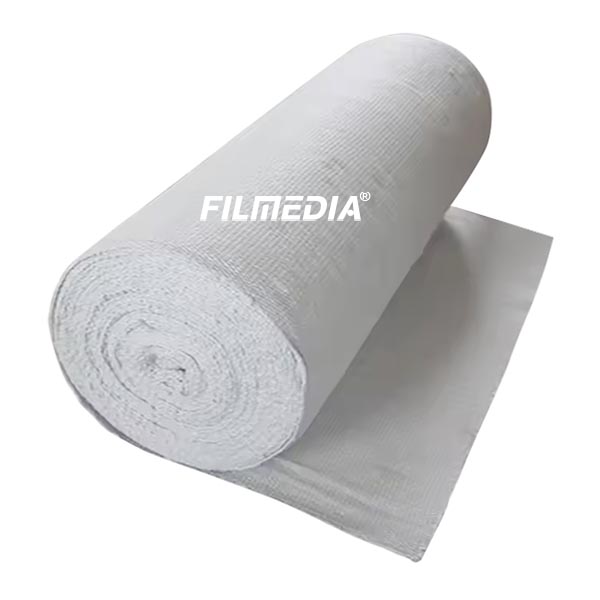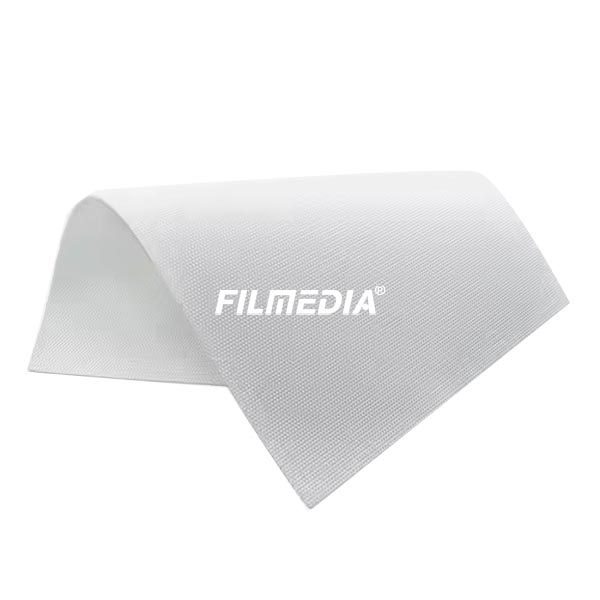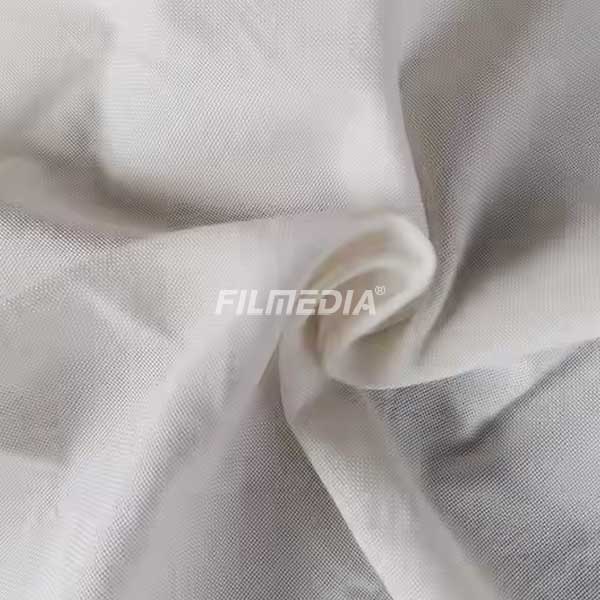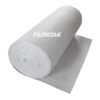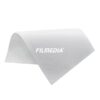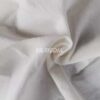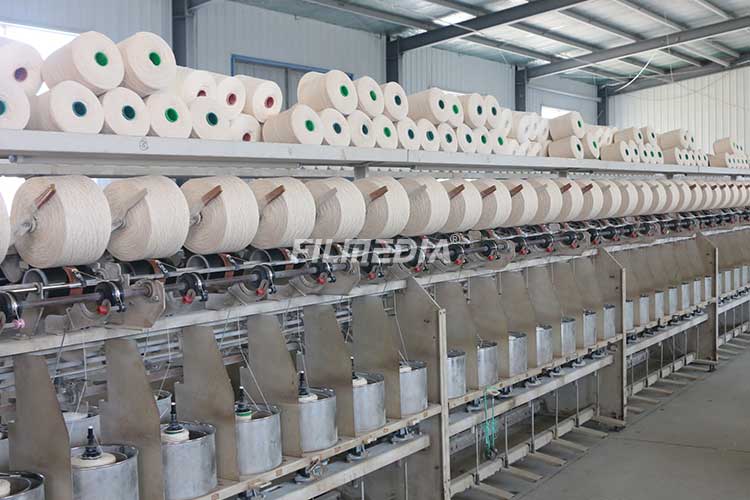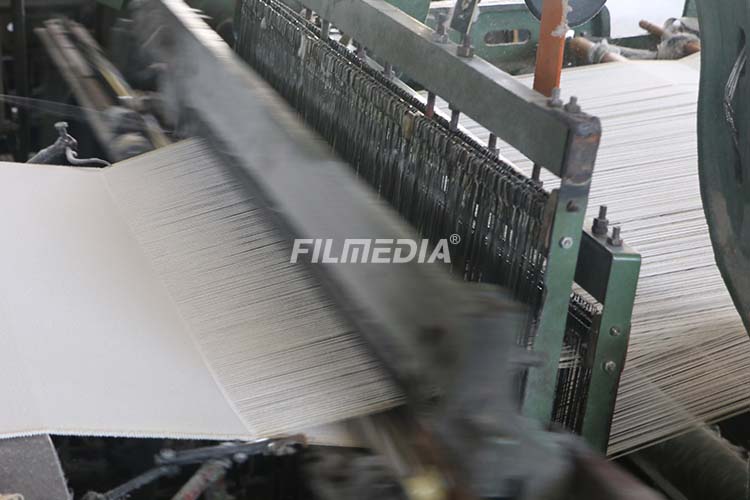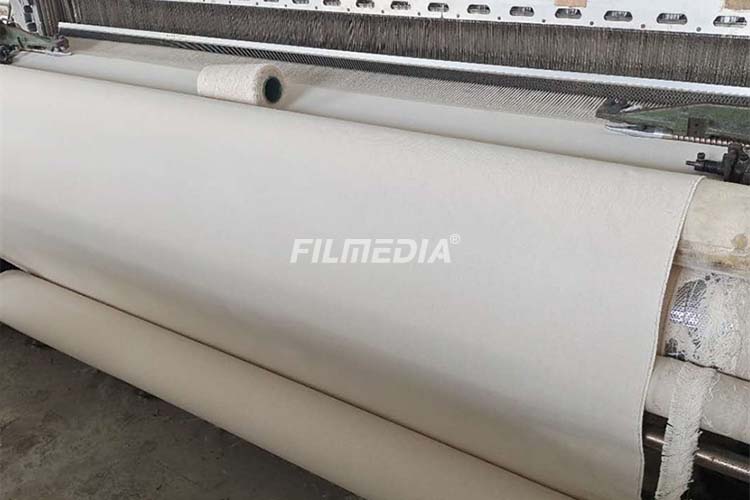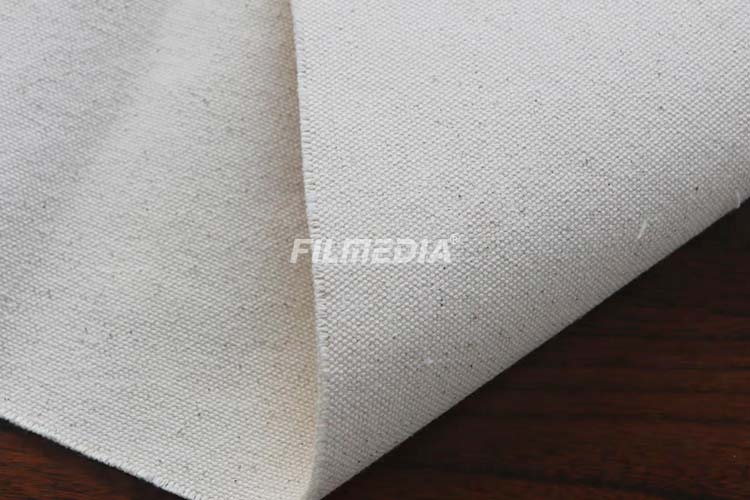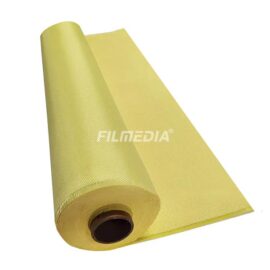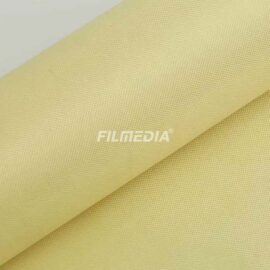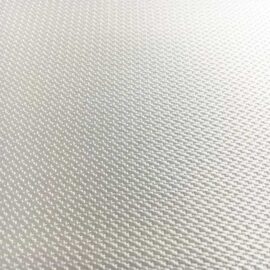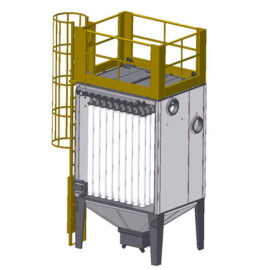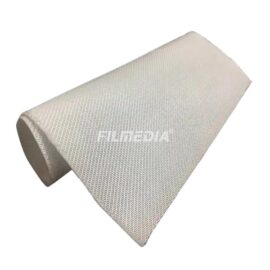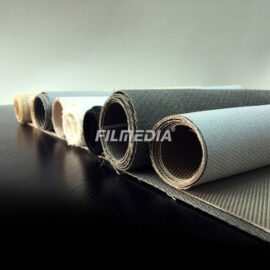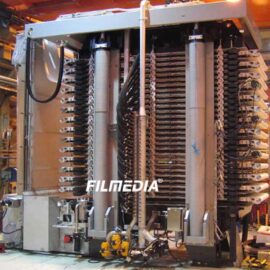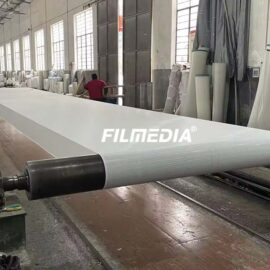Cotton filter cloth is a fabric made from cotton fibers, often used in filtration applications due to its natural, breathable, and absorbent qualities. It is commonly used in industries such as textiles, food and beverage, pharmaceuticals, and chemical processing for filtering solids from liquids or gases. Well-known for its filter media, Filmedia® cotton filter cloth is an ideal material for industrial use, a wide range of Industrial cotton filter fabric are manufactured consciously for sophisticated and large filtering systems.
- Material: 100% cotton.
- Color: Raw.
- Thickness: 1.00-2.50mm.
- Weight: 300-1600 gsm.
- Width: 600- 2200mm.
- Elongation Shrinkage: Warp 3%, Weft 1.5%.
- Package: 50-100 meters per roll.
- Filtering : 0.5-100micron.
- Weave: Plain, twill, satin.
- Recommended Maximum: 130ºC.
We welcome customized order and free samples are available.
Description
Advantages of Cotton Filter Cloth
- Absorbency: Cotton has a high absorbency rate, making it useful in applications where liquid filtration is necessary.
- Breathability: Cotton is breathable, which can be beneficial for applications requiring air filtration.
- Softness: It is soft and gentle, which can be essential when filtering delicate materials or substances.
- Biodegradability: Being a natural fiber, cotton is biodegradable and environmentally friendly.
Notes: Cotton filter cloth is not as durable or resistant to chemicals and extreme temperatures as synthetic materials such as polyester or polypropylene, however. It is typically used in less severe conditions where durability and abrasion resistance are not as important.
Common Application of Cotton Filter Cloth
Cotton filter cloths are widely used in various filtration processes due to their natural fiber properties, strength, and versatility. Some common applications include:
- Industrial Filtration: Cotton filter cloth is commonly used in industries such as mining, chemicals, food processing, and pharmaceuticals for separating solid particles from liquids. The cloth can be used in baghouses, dust collection systems, and filter presses to capture dust, debris, or other particulate matter.
- Water Treatment: In water purification and sewage treatment, cotton filter cloths are employed to remove suspended solids, algae, and other contaminants from water. Their high absorbency and filtration efficiency make them ideal for this purpose.
- Oil & Gas Industry: Cotton filter cloths are used in the filtration of oils, fuels, and other liquids in the oil and gas sector. They help remove particulate matter and other impurities from lubricants and crude oils.
- Food and Beverage Processing: In the food and beverage industry, cotton filter cloths are used for filtering liquids like juices, oils, syrups, and brewing liquids. They help maintain product quality by ensuring clarity and removing unwanted particles.
- Pharmaceutical Applications: In pharmaceutical manufacturing, cotton filter cloths can be used for the filtration of various liquids, such as solvents, extracts, and other raw materials, to ensure purity and compliance with regulatory standards.
- Textile Industry: In textile manufacturing, cotton filter cloth is used in dyeing and finishing processes to filter impurities from the chemicals used in these operations.
- Air Filtration: Used in ventilation and air-conditioning systems, cotton filter cloths can capture dust, pollen, and other airborne particulates, improving indoor air quality.
- Dust Collection: In factories where heavy dust is produced (such as cement, coal, and wood industries), cotton filter cloths.
Filmedia® is a professional filter cloth manufacturer in China, providing high quality cotton filter cloth. The products are widely used in aerospace, chemical industry, petroleum, large-scale power generation equipment, machinery, metallurgy, electrical insulation, construction and other fields. Depending on specific filtration requirements, these cotton cloths can be customized with varying thickness, porosity, and chemical resistance, making them a versatile material for a wide range of industrial applications.
Tips
Before you choose the cotton filter cloth, please let us know your temperature, humid, dust diameter, gas chemical properties, dust abrasive, filter’s mechanical parameters and so on,therefore our technical personnel or our professional sales can advice the most suitable filter cloth for you.

